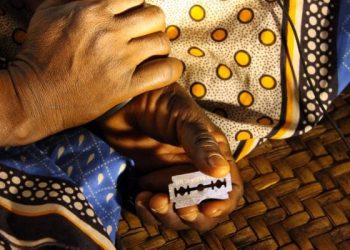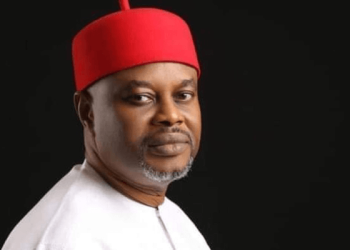How the Presidency treats the corruption scandals involving the Secretary to the Government of the Federation (SGF) David Babachir Lawal, is perhaps, the greatest test of the integrity of President Muhammadu Buhari as a leader and the anti-corruption stance he has projected since he came to power in May 2015.
Nigerians would recall the case of the former Minister of Aviation, Stella Oduah, who was alleged to have procured two bullet-proof cars for questionably huge sums of money. Among those that clamoured for her resignation and prosecution were the leaders of the All Progressives Congress (APC).
As an opposition party, the APC marketed itself as a highly ethical political party which would not condone such conduct. Its election last year was based largely on the public’s hope that the APC was going to fight corruption to a standstill and comprehensively.
The regime has, in its nineteen months of existence, mounted a series of anti-corruption operations focused mainly on the recovery of alleged looted funds from former officials and cohorts of the defeated People’s Democratic Party (PDP) regime. In October 2016, the State Security Services (SSS) conducted midnight sting operations on seven judges and forced them to step aside from hearing court cases while being investigated for trial.
Having set that template against serving officials, Nigerians expected that when corruption allegations cropped up against top Presidency officials and acolytes of the President, such as the Chief of Staff, Abba Kyari; Acting Chairman of the Economic and Financial Crimes Commission (EFCC), Ibrahim Magu and SGF Lawal, the President would also act with dispatch to show that the anti-corruption war is not mere political witch- hunt as some critics allege.
Lawal’s case is very sensitive, as he is alleged to have abused his office over the Presidential Initiative on the North East (PINE). Huge sums of money were allegedly paid to companies he is linked to for frivolous contracts that diverted funds meant for the welfare of victims of Boko Haram in the North East.
The Senate indicted Lawal of culpability and recommended his immediate removal from office pending his prosecution, Lawal has dismissed the Senate’s position as “balderdash”.
It is not just an issue of personal honour for Lawal to step aside; the credibility of the President and the government he leads is at stake. So long as all those alleged to have been involved in acts of corruption continue to bestride the corridors of Aso Villa, the war on corruption will be seriously compromised by doubts. Nothing stops the President from reappointing any official who is able to clear his name.
It is worrisome that allegations of corruption are beginning to pile up within this government, and the President appears to vacillate on issues. That is unacceptable.













































